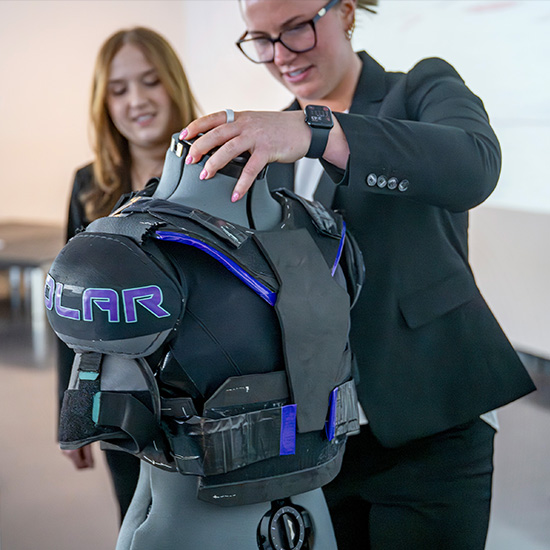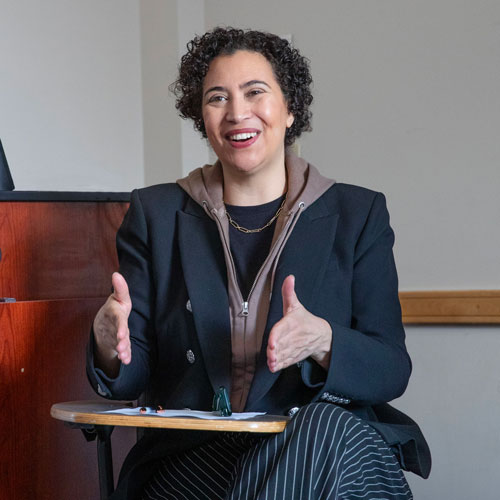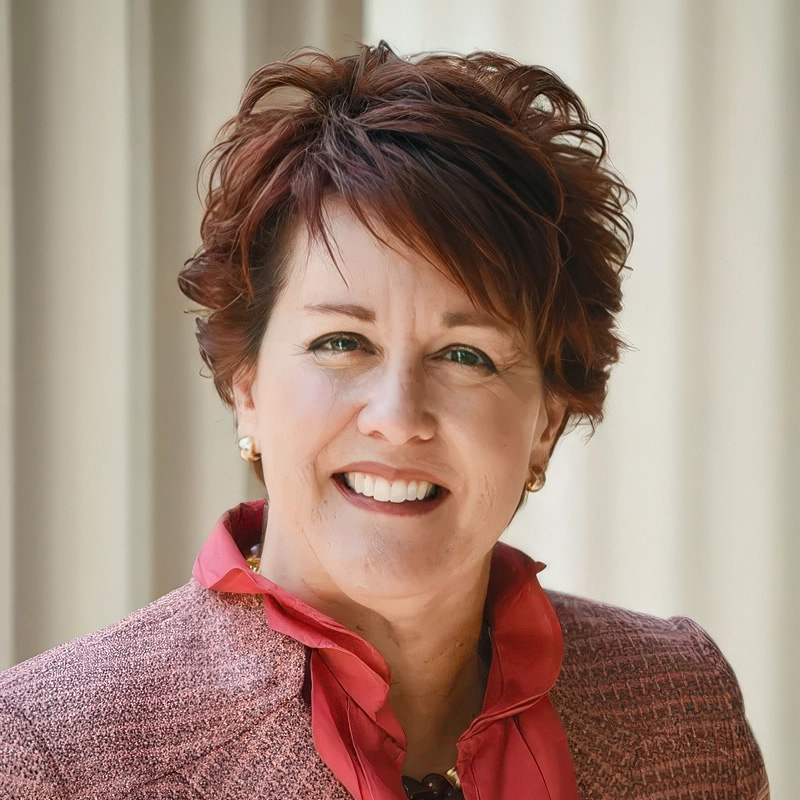New Tang exhibit raises timely questions
No Place to Hide, a new exhibition at the Frances Young Tang Teaching Museum and Art
Gallery, raises timely and critical questions about the balance between liberty and
security in current times.
Open through Sunday, Feb. 21, 2016, the exhibition was co-curated by Rachel Seligman,
Tang assistant director for curatorial affairs, and Scott Mulligan, teaching professor,
Department of Management and Business and International Affairs. The exhibition engages
questions of privacy and living in a data-driven surveillance society, where personal,
often intimate, details are being collected, stored, processed and sold on a daily
basis.
The term "surveillance" originated in the late 1700s during the French Reign of Terror, which followed the French Revolution. More recently, philosophers have explored how unceasing observation—constant unwavering watching—will likely shape and modify an observed subject’s behavior. In essence, this continuous monitoring amounts to a form of disciplinary power and societal control. Once the realm of the totalitarian state, many democratic governments and private businesses now exploit surveillance technologies to collect, store, analyze, profile, share, and sell vast quantities of personal information. What implications do widespread official and commercial deployment of these technologies have on life in contemporary society? What are the consequences for those who are increasingly finding themselves to be "under control"?
No Place to Hide brings together three contemporary artists who all address the impact of "being watched." Hasan Elahi confronts the FBI after being mistaken for a terrorist, Addie Wagenknecht shows how our devices are constantly sending out information to the "cloud," and Aaron Zinman elegantly reveals just how easy it is to find information about yourself.
These works ask us to consider the myriad ways in which we are all under surveillance, the potential ramifications of this data collection, and how our daily electronic interactions contribute to the growing body of personal information being collected about us.
This fall, students from Mulligan’s Scribner Seminar "No Place to Hide" have been studying, discussing, and writing about the art on display, as well as contributing their own work, Mapping Surveillance in Saratoga Springs, to the exhibition, further demonstrating how, even here, we are all being watched.
A gallery talk and reception featuring students in the class and the co-curators is scheduled at 5:30 p.m. Thursday, Nov. 19, with a reception to follow. The public is welcome.


